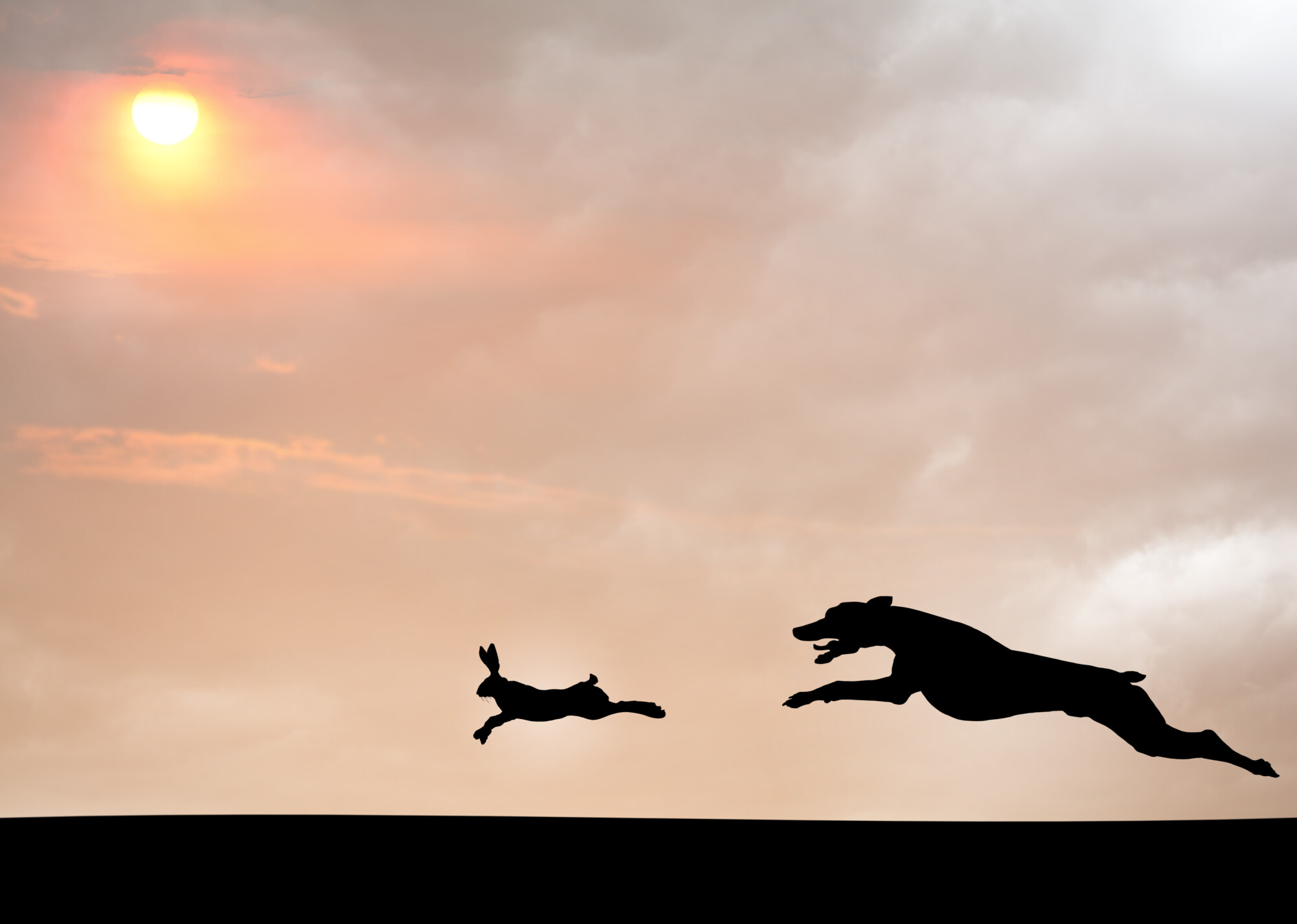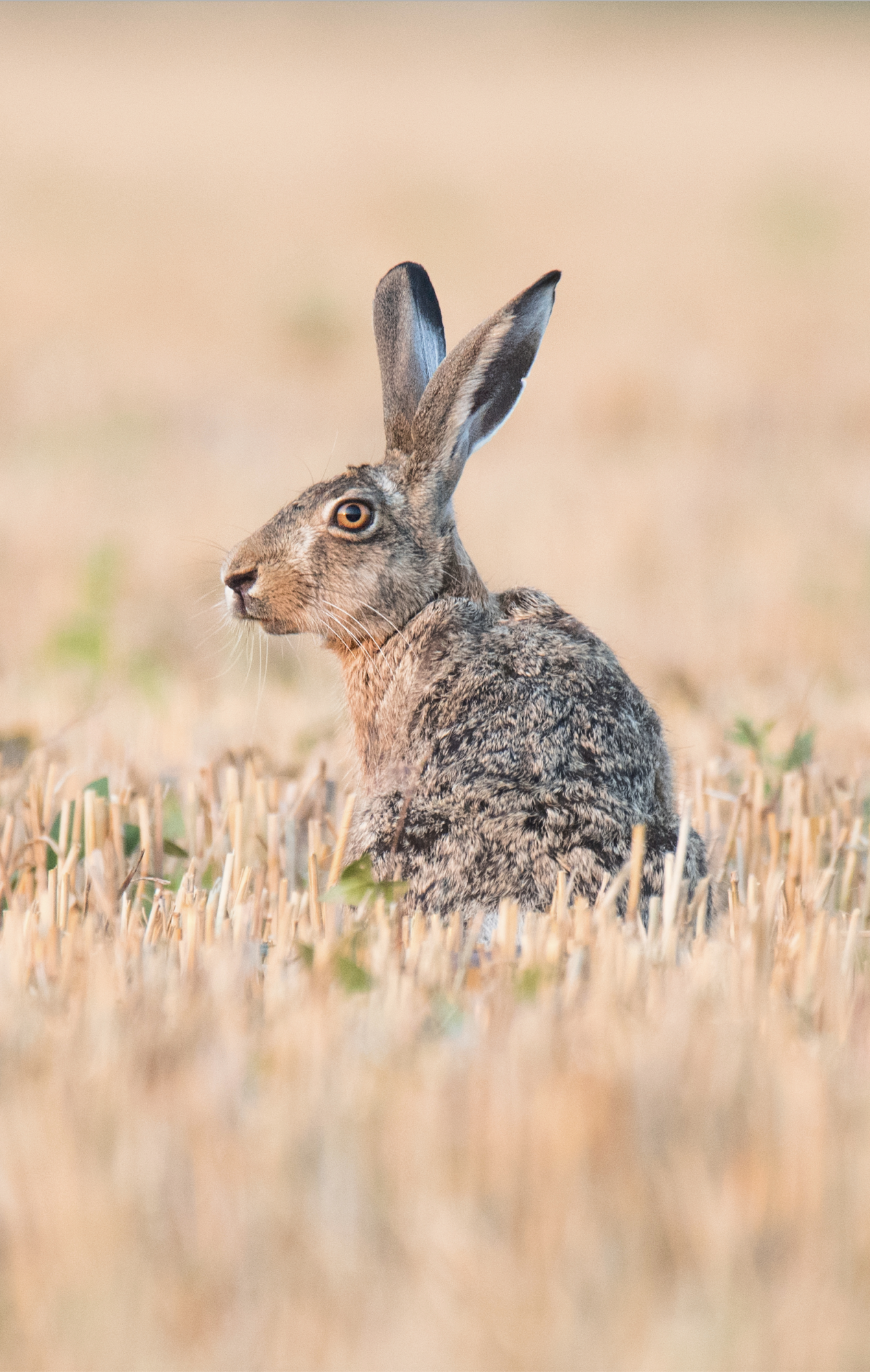Hare coursing: Farmers continue to pay the price for criminals’ favourite sport
9th July 2021
Despite being banned in 2004 as part of the Hunting Act, hare coursing remains a costly and distressing problem for farmers across the UK
While it may be a crime that many in the general public are unaware of, for thousands of farmers across the UK hare coursing presents a significant problem each year. The illegal sport sees groups access land with highly trained dogs to chase down and kill wild hares and rabbits – and in order to get a good view of their prey, organisers will likely target post-harvest fields with open plains, allowing the dogs to build up a good speed.
Coursing can be hugely stressful for farmers and land owners as activity can cause damage to crops, fences and gates. Like all other forms of hunting, it has been outlawed for dogs to hunt and kill in this way. But the ban has led to a much darker network of enthusiasts, and a lucrative gambling network.
“A blood sport of choice for high-end criminals”
Whilst hare coursing, alongside other forms of poaching and illegal land access, has been a problem in the countryside for centuries, the increased access to the internet and technology has exacerbated the problem. Coursing is no longer just a poacher’s pursuit, but an extensive money-making entertainment business. Now, most hare coursing taking place in the UK is filmed for eager audiences away from the field. Encrypted messaging services mean that the criminal activity can be livestreamed and recorded without fear of incrimination.
Organisers are no longer just making money from betting in the field, but are also able to rake in cash from hundreds, or thousands, of spectators online.
This increased revenue has led to increased criminal determination. Due to the nature of the transactions, it is difficult to say exactly how much money is being made through organising and betting on hare coursing, but it is undoubtably an enormous amount each year. At present the largest possible fine under the Game Act for being caught hare coursing is £1,000 – a small deterrent for the criminal gangs involved. Whilst the sport is illegal under the Hunting Act, which has harsher penalties, the volume of proof needed often makes a conviction under that legislation unfeasible.
What makes the crime even more concerning for farmers is that those involved often seem to be linked with other criminal activities. There is an underground network of people travelling hundreds of miles to watch and partake in hare coursing in person. The ‘sport’ involves organisers, spectators, betting agents, breeders, trainers and more. Dogs bred and trained for the sport can fetch high prices, creating yet another illegal revenue stream. Naturally, the large amounts of cash changing hands, unrecorded, attracts those involved in other criminal enterprises.
“It’s a blood sport of choice for some high-end criminals. We have been able to supply absolutely key information; their mobile phone numbers and who they are associating with, which has led to the conviction of drug traffickers. There is a network of offenders around the country who are involved in high-level criminality and hare coursing.”
This only adds to the potential dangers for those in rural communities encountering hare coursing and it is advised not to approach those taking part, and instead call the police.
Those most severely affected by the illegal activity are farmers. Coursing can cause immense damage to the farm. Not only will those entering the site illegally often damage fences and security features, once on the land crops can be trampled and damaged, livestock will be spooked or chased, and fields can be spoiled by both car tracks and discarded hare carcases.
A recent survey by the Yorkshire Agricultural Society suggested that of the farmers who had hare coursing on their land, 86 per cent suffered from criminal damage. From the respondents to the survey, one in five had spent at least £5,000 on repairing damage or taking preventative action in the last three years.
Possible legislation on the way
Following pressure from country organisations, changes have recently been proposed to the Game Act of 1831 which would see harsher penalties and more opportunities for police to intervene.
Under the proposals, ‘going equipped’ for hare coursing will be an offence in its own right. This will allow police to take action without catching perpetrators completely red handed. As Covid-19 lockdowns have seen more people take to the countryside, there has been greater awareness of rural crimes and propositions of reform outdated and inadequate legislation.
In June, the matter of hare coursing was taken to the House of Commons, as a private members bill, and is due to be debated in coming sessions. Speaking on the proposed bill Richard Fuller MP said: “Hare coursing is a serious and aggravating crime, but victims of this crime are currently poorly served in obtaining justice.
“Although hare coursing is illegal it is not a notifiable offence and many incidents are not reported. Police powers to intervene, already difficult given location and times of day for hare coursing, are ill suited to the crime and too often the penalties are an insufficient deterrent. This Bill will seek changes to give the police the tools they need to do the job.”
Sadly, new changes to legislation won’t be in effect soon enough to help farmers this year. Harvest is rapidly approaching, and cleared fields are the opportune location for hare coursers. Farmers who witness any illegal activity are encouraged to write down as much information as possible, and call 999 if trespassers are still on the property, or 101 to report when violators have already left.
If you have problems with hare coursers on your land the NFU recommends the following action:
- Find out if you have a dedicated rural crime officer with a direct contact number.
- Make sure you clearly state ‘hare coursing’ to ensure that the incident is recorded correctly.
- Have field grid references ready – these will ensure police can locate you quickly. Find out how what3words can provide accurate locations for use in these types of situations.
- If possible provide a description of the person including notable features, and also descriptions of any vehicles including number plates and any distinguishing features.
- Be discreet when collecting evidence. Approaching hare coursers whilst holding a camera may be inflammatory. If you use a dashcam you may want to pass any footage to the police as evidence.
- Ensure that you receive and make note of your crime reference number.
- Join your local countryside watch if available to gain forewarning of coursers in the area.


